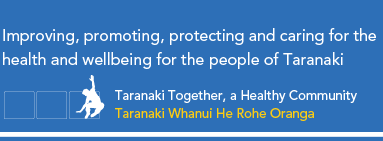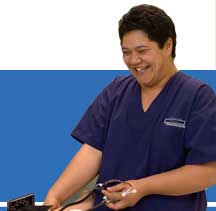Maori Health and Disability Workforce Project Celebrates First Year
8 September 2011
Whakatipuranga Rima Rau: Towards 500
Whakatipuranga Rima Rau (WRR) aims to create 500 employment opportunities for Maori in the Taranaki health and disability sector over the next 10 years.
WRR was initiated by the Ministry of Social Development through Work and Income and the Taranaki District Health Board, in conjunction with iwi relationship board Te Whare Punanga Korero. It has additional funding and support from the TSB Community Trust, Te Puni Kokiri and Kia Ora Hauora.
WRR uses ‘Health as a career’ as the major platform to guide, support, mentor, fund and facilitate Maori through education and training and onto employment in the local health and disability sector. “Incubator”, an intensive student mentoring programme is one way of doing this.
Thanks to the support of the TSB Community Trust 50 year 12 and 13 Maori students from Hawera and Waitara High Schools participated in the Incubator programme in 2010. Their continued support has enabled WRR to extend the Incubator programme to include four other secondary schools across Taranaki in 2011 and also to employ a dedicated student support person to guide students through their pathway into health. Since extending the Incubator program 111 students have registered this year, with some of these students returning from last year’s group.
In October 2010 the project celebrated the first appointment under Whakatipuranga Rima Rau with the Taranaki District Health Board sponsoring the first Maori dental cadet, Te Waikapoata Tamati.
The cadetship was set up due to the shortage of dental therapists in Taranaki and the need to continue to grow dental services that are more responsive to Maori. Te Waikapoata has had hands-on experience in a variety of dental health roles and is now moving on to further study in this field at the University of Otago in 2012.
This appointment marks the first step in an initiative that addresses skill shortages in the health industry and offers training opportunities and placements for Maori in the Taranaki health and disability network. “It is a significant milestone in a project that will make a real difference improving the overall health of our community,” said Taranaki DHB Chief Maori Adviser Ngawai Henare.
On the back of this success, WRR developed six health internships which gave six young Maori interns the opportunity to experience the health sector for ten weeks. This was funded by Kia Ora Haoura, a national Maori health workforce development initiative. The interns were placed in a range of Maori and mainstream providers and all six have chosen to further their studies in the health and disability sector, which represents a significant gain for the health workforce in the coming years.
One student who began with the Incubator programme is Dillon Manuirirangi. Dillon joined the Incubator programme when he was at Hawera High School. He then participated in an internship, as above, and he is now undertaking his Bachelor of Health Sciences at the University of Auckland, with the view to getting in to Medicine next year.
Between July 2010 and June 2011 52 additional Maori were employed into the health and disability sector. The aim now is to strengthen the relationships already established with employers and provide further support to recruit and retain Maori in the sector.
The WRR team recognises that this is an ambitious project, but one that is sorely needed to increase the health status of Maori and address current and projected gaps in the health workforce, said WRR Trust Chairman David Tamatea “While ambitious, this project has already had incredible success since its launch and over the coming year intends to develop a stronger focus on employment outcomes while strengthening and extending its current programs.,” he said.
Whakatipuranga Rima Rau (WRR)
Whakatipuranga Rima Rau (WRR) was initiated by the Ministry of Social Development through Work and Income and the Taranaki District Health Board, in conjunction with iwi relationship board Te Whare Punanga Korero. It has additional funding and support from the TSB Community Trust, Te Puni Kokiri and Kia Ora Hauora.
Maori represent 16% of Taranaki’s population but only about 6% of the health workforce. Evidence indicates a strong correlation between the health outcomes of Maori and the way services are delivered to them.
More than 60% of the Maori population is under the age of 30, which represents tremendous potential for the future of Taranaki and the health and disability workforce.
Dillon Manuirirangi is available for a media interview and photographs. If you are interested please contact him on 027 555 2771.
Sue Carrington
Taranaki DHB
Media Adviser
Ph 021 367 789
.
Last updated: Wednesday, October 30, 2013



